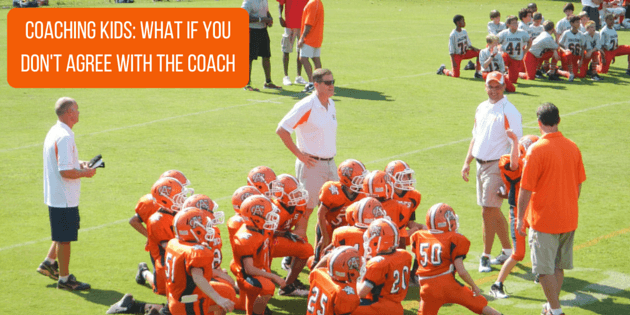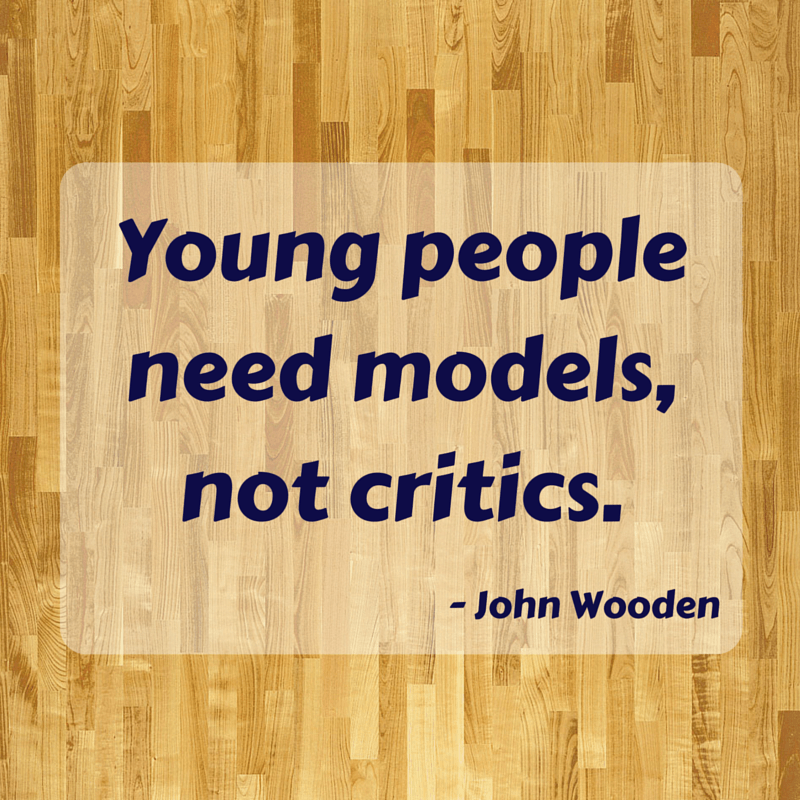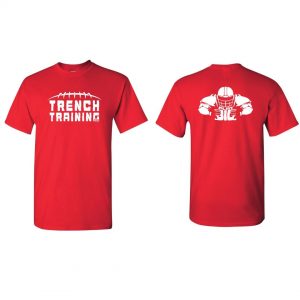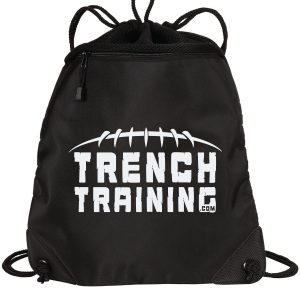Coaching kids is a not easy. There are always challenges.
Many times we see things in a different perspective than the coaches on the field.
I know for me there are times that I think I know more than a coach and I watch how they deal with my child and I get very frustrated.
SO WHAT DO I DO BESIDES SCREAMING, YELLING, OR SETTING UP A MUTINY?
In the article by Jim Thompson at PositiveCoach.org, he recommends becoming a second goal parent. So unless there is harm to the players I recommend practicing this technique.
He states, “You are not the coach. You are not the athlete. You are a supporting player in this drama, so act your part and move to the background.”
You are there for one reason and that is to support your child. This what he means by being a second goal parent.
In life many times there will be take overs or changes at a job and you may find yourself not agreeing with the direction of the company or leadership.
You have two choices. Work with what you have or work against it.
If you choose the latter many times you will find yourself exhausted, frustrated, wanting to quit or find another job.
This is similar to situations that I have seen parents get into with coaches.
Parents fight with the coach and then their son or daughter may follow your lead and put up a struggle, instead of being a positive leader to the others.
Because the parents fought with the coach, their child many times end up not getting as much playing time as they deserve or I have experienced and seen them get passed over for captain their senior year because of your behavior.
As an adult we have to make decisions.
The more mature or practiced we are at dealing with conflict, the more prepared we will be to help our young athletes deal with conflict.
They will learn how to be better players because of your support and many times find that they spend their energy finding ways to be better instead of finding more ways to complain or find fault in the coach.
If you play long enough you realize the difference between a really good coach who is there for the athletes and a blowhard who is coaching for their own agenda.
I have been blessed to have some very good coaches in my life. I have played for and coached with some great coaches as well.
I have also been frustrated with some coaches that were not so good at coaching myself or other kids.
Looking back on my days as a player and coach I have very few regrets. There is one thing that I would have done differently when I had one of those “not so good coaches”.
I would have worked on myself more and focused on what I could do better each day. I know I would have been a better player and coach had I done that.
Trust me, now that I have two daughters that are starting to play sports more seriously I know that I am going to be tested on this many times.
I am going to do more reading and studying on this topic myself because I do know that it is important to support your young athlete!
It’s also important for me to continue learning as I am coaching kids.
Being a Second Goal Parent makes a lot of sense to me.
Suggestions that I am making for myself and you can try as well:
- Get a support group of parents and lead them with the Second Goal Parent concept. When you have more people on your side at games and practices it will make it easier.
- Find articles on positive parenting for your athlete. There are many great reads out there. One of my favorites of all time is “Wooden A Lifetime OF Observations and Reflections ON and Off the Court”
Here are a couple quotes from that book for you to ponder:
Six of Life’s Puzzlers
- Why is it easier to criticize than to compliment?
- Why is it easier to give others blame than to give them credit?
- Why is it that so many who are quick to make suggestions find it so difficult to make decisions?
- Why can’t we realize that it only weakens those we want to help when we do things for them that they should do for themselves?
- Why is it so much easier to allow emotions rather than reason to control our decisions?
- Why does the person with the least to say usually take the longest to say it?
Parents, Children, and Goals
“A parent can help direct a child when it comes to goals. Show leadership. Show discipline. Show industriousness. Have traditional values. The person you are is the person your child will become.”
Commend, Don’t Criticize
“When a child does something well, commendation is a powerful tool. One of the most powerful motivating tools you can use is the pat on the back. Yes, occasionally the pat must be a little lower and a little harder, but too often parents neglect the praise. They are quick to criticize and slow to commend.”
- Realize that the season is a short time in your athletes life. If you are an athlete yourself you can remember back on great seasons hopefully, as well as not so great seasons. We tend to remember those not so good seasons as learning lessons. Help your athlete make the most of bad situations because if you are honest with yourself there will be more seasons that do not go as you would hope.
- If it all fails then you can make a decision to confront the coach or go above the coach but use this as a very last resort and please ask your Athletes feelings on you doing this. The last thing that you want to do is embarrass or turn your athlete away from you. Be his or her best advocate and lead by example. I have made a commitment to myself that I will do everything in my power to support first and exhaust all resources that I can find prior to making a decision to confront and once you have made this decision then make sure that you are able to do it without being angry. Use your anger to do the research and to find the people that can help you learn and understand how powerful it is to be a support and not control your athletes game. I am betting that if you really put forth this type of effort you will come to realize that this is not an option to use.
Again from Wooden…
Six Ways to Bring Out the Best in People
1. Keep courtesy and consideration for others foremost in your mind, at home and away.
2. Try to have fun without trying to be funny.
3. While you can’t control what happens to you, you can control how you react. Make good manners an automatic reaction.
4. Seek individual opportunities to offer a genuine compliment.
5. Remember that sincerity, optimism, and enthusiasm are more welcome than sarcasm, pessimism, and laziness.”
6. Laugh with others, never at them.
Once again, coaching kids is not easy.
You as a parent have a very important role to play.
Just remember that is a supporting role not the lead.
Work Hard, Play Big!
Coach Glenn







